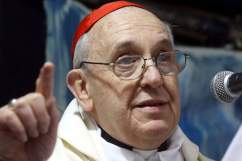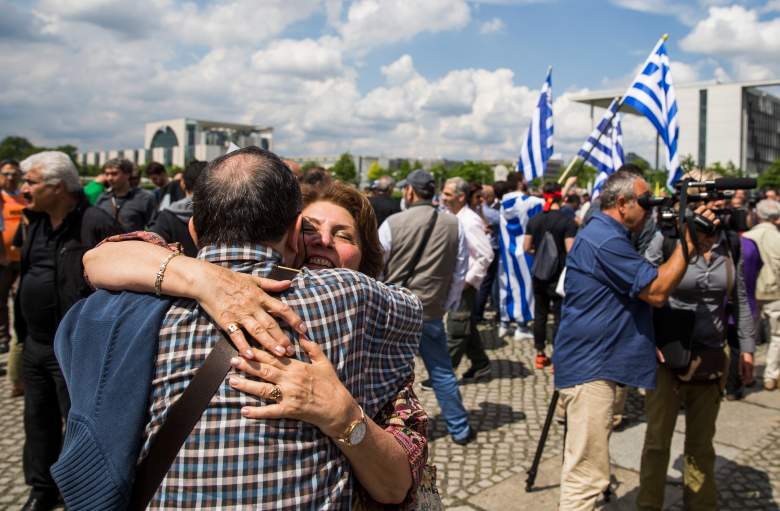
Activists hugging outside the Bundestag (Getty)
Over a century after the killings of millions of Armenians in the Ottoman Empire during World War I, the German Parliament overwhelmingly passed a decree calling the massacre a “genocide.” The decision instantly sparked anger from the Turkish government and highlighted how sensitive the issue remains. Only one MP in the Bundestag voted against the measure and another abstained.
The decision comes at a perilous time for Europe and Turkey as the ongoing migrant crisis continues. German chancellor Angela Merkel had been working with Turkey’s president, Racep Tayyip Erdogan, to help limit the number of migrants coming into Germany from the Middle East, but today’s vote in Berlin is already testing that relationship.
Here’s the facts of the situation.
1. Germany Is Only Among 27 Countries That Acknowledge Genocide
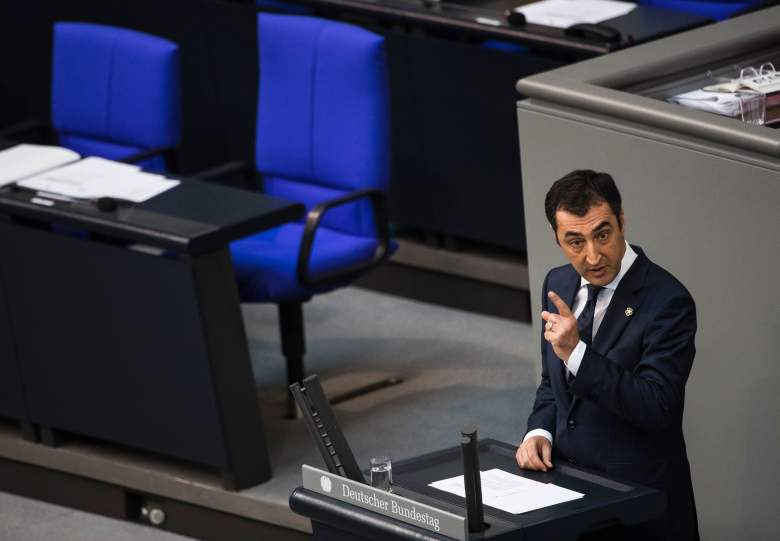
Green party MP Cem Oezdemir speaks, with Angela Merkel’s empty chair beside him. (Getty)
Germany is one of only 27 countries in the world to acknowledge the killings of Armenians in 1915 and 1916 as a genocide. According to the Armenian National Institute, the other countries include France, Austria, Sweden, Switzerland, Russia, Poland, and Canada.
While the U.S. has recognized the Armenian Genocide, President Barack Obama stopped shot of calling it that after being elected. Obama criticized President George W. Bush in 2006 for asking the U.S. ambassador to Armenia to resign after calling the event a genocide and he promised during the 2008 campaign to call it a genocide. However, to please Turkey, Obama hasn’t done so since being elected, CNN noted last year. Turkey is the only Muslim-majority country in NATO.
2. Vote Was Possible Acknowledgement of Gemrany’s Indirect Role in Genocide
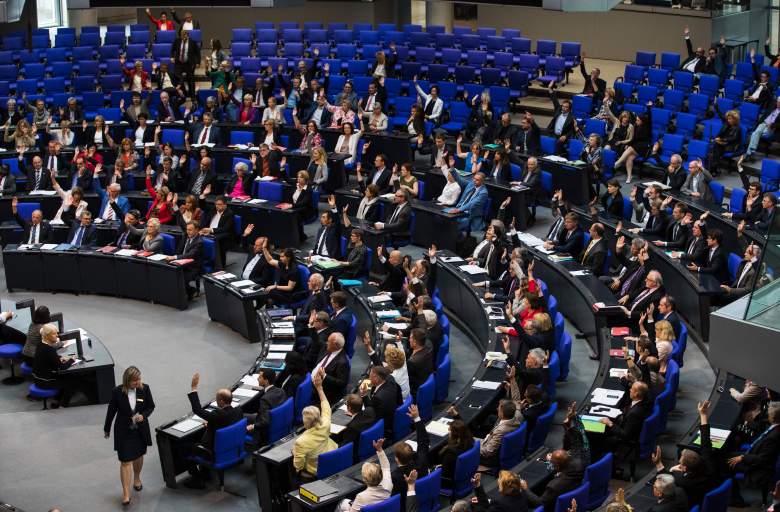
The vote at the Bundestag (Getty)
Historians estimate that 1.5 million Armenians were killed during the genocide. Turkey criticizes that term because thousands of Turks also died as the Ottoman Empire crumbled during World War I. The Turkish government also believes that the death toll has been overestimated.
The New York Times notes that historians also suggest that today’s vote in Germany was a way for the country to acknowledge its own indirect involvement. During the war, the Ottoman Empire was on the side of Germany and the Austro-Hungarian Empire. Germany has also had to come to terms with its own atrocities during World War II.
Cem Ozdemir, the co-chairman of Germany’s Green Party, said that there is “never a favorable time to speak about something as dreadful as genocide” and also acknowledged that there were Turks who saved Armenians. However, Ozdemir was still in favor of the measure.
3. Turkey Recalled its Ambassador to Germany
The Turkish response to the vote has been, as expected, negative. The Telegraph reports that Ankara recalled its ambassador to Germany. Turkey did the same in 2011 when the French parliament also recognized the killings as a genocide.
Turkish foreign minister Mevlut Cavusoglu took to Twitter to decry the vote. “The way to close the dark pages of your own history is not by defaming the histories of other countries with irresponsible and baseless decisions,” he wrote.
This will make it difficult for Germany to work with Turkey on a deal with the EU that would help manage refugees coming from Syria and other Middle East conflicts to Europe. Turkish Prime Minister Binali Yildirim said that the vote only distracted from real issues like that, adding that it is “a real test of friendship.”
4. Armenia Praised the Move
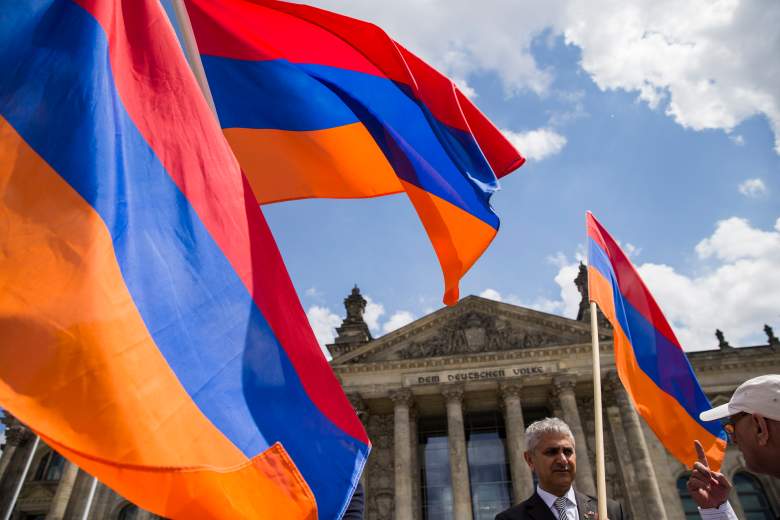
Armenian flags outside the Bundestag (Getty)
Armenia praised the decision by the German politicians. Its foreign minister, Edward Nalbandian, thanked Germany for a “valuable contribution not only to the international recognition and condemnation of the Armenian Genocide, but also to the universal fight for the prevention of genocides and crimes against humanity.”
5. Turkey Was Also Angry at Pope Francis for Recognizing Genocide
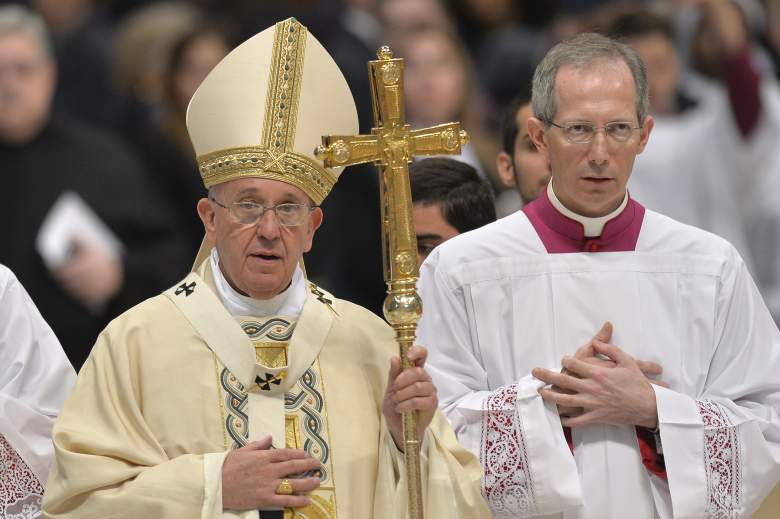
Pope Francis marks the 100th anniversary of the Armenian Genocide in 2015 (Getty)
In April 2015, Pope Francis similarly drew anger from Turkey, which pulled its ambassador to the Vatican after Francis recognized the Armenian Genocide. According to The New York Times, Armenian President Serzh Sargsyan was present at the time that Francis used the word genocide.
“Today, too, we are experiencing a sort of genocide created by general and collective indifference,” Francis said, calling it a “senseless slaughter.”
“Concealing or denying evil is like allowing a wound to keep bleeding without bandaging it,” the pope added.
